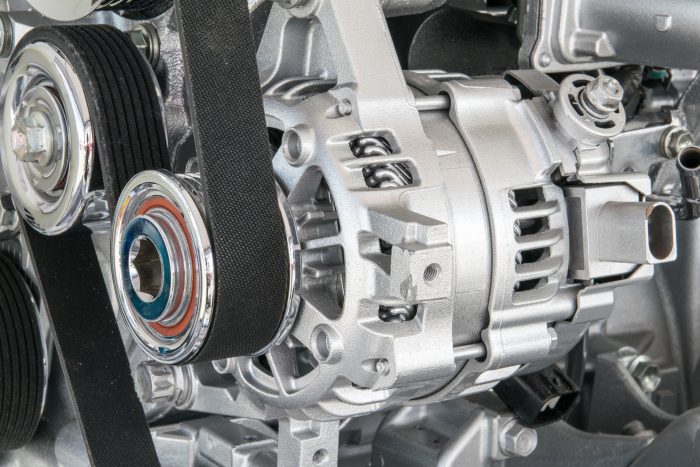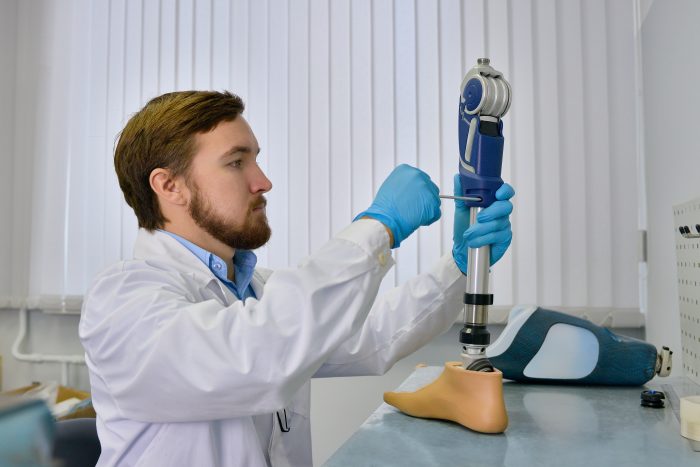The Biomedical and Mechanical Engineering program at Carleton University uniquely combines the foundation of mechanical engineering and the exciting and rapidly growing discipline of biomedical engineering. This combination includes the chemistry, biology and biochemistry knowledge needed to contribute to biomechanical technology development and design, and the engineering science and design disciplines of biofluids, biomaterials and biomechanics.
The integration of these topics gives students the ability and opportunity to design and build new components and systems for biomechanical applications. Other applications include the design of prostheses, artificial organs, new drug delivery systems and medical devices for improved health care and monitoring.
The Carleton Advantage
Carleton University’s Bachelor of Engineering (BEng) degree program in Biomedical and Mechanical Engineering offers:
- a co-operative education option that combines study and work experience for top students;
- strong emphasis on hands-on laboratories and design,giving you a chance to learn by doing; and
- excellent scholarships for high-standing students
Our Laboratory and Research Facilities
At Carleton, you will benefit from:
- modern, well-equipped laboratories;
- excellent computer facilities on campus;
- proximity to, and collaboration with, area hospitals; and
- an interdisciplinary approach with opportunities to work with, and learn from, students in other biomedical and design programs.
Your Co-op Opportunities
As a student in the Biomedical and Mechanical Engineering program you will have the opportunity to apply to the Co-operative Education Program. Co-op integrates degree-related, paid work terms into your degree program. A minimum of four work terms are required to obtain the Co-op designation on your degree. Often, the four consecutive work terms following third year take place with the same employer.
Our program is closely associated with research institutions and industry, giving students valuable work experience and contacts that will benefit them in the future.
The pattern of work and study terms for the co-op option is shown in the following table.
| Calendar Year | Fall | Winter | Summer |
| 1 | study term 1 | study term 2 | |
| 2 | study term 3 | study term 4 | work term |
| 3 | study term 5 | study term 6 | work term |
| 4 | work term | work term | work term |
| 5 | study term 7 | study term 8 |
Choosing the Right Program
The BEng program in Mechanical Engineering is fully accredited by the Canadian Engineering Accreditation Board. The program is also designed to meet the prerequisite courses required by many medical schools in North America.
First year begins with a common core of fundamentals in engineering, mathematics and science. Second year offers introductory courses in fluid mechanics, thermodynamics, materials and biochemistry. In the third year, specialized biomechanical courses are offered, such as biofluids and biomaterials, along with mechanical engineering design courses and organic chemistry. Fourth year offers further specialization in biomechanics and biomechanical device design, as well as the opportunity to apply your knowledge in a major group design project relevant to the medical and health-care fields.
Course Structure
The courses of a typical Biomedical and Mechanical program are shown below.
Note: As study terms and courses offered may vary, please refer to the Carleton University Undergraduate Calendar for specific program requirements.
Your Future Opportunities
As a graduate of the Biomedical and Mechanical Engineering program, you could find employment in health-care establishments and medical facilities, working with medical equipment or medical devices. You could also be employed in industry in the development of health-care technologies.
Alumni Feature
“[My] company doesn’t underestimate its junior engineers. They give you meaningful tasks and responsibilities, and there’s definitely a lot of room for personal and professional development.”
– Jasmine Shaw (BEng/16 – Biomedical and Mechanical Engineering, MASc/20 – Technology Innovation Management) Technical Project Manager at Solace
Admission Requirements
For admission to the Biomedical and Mechanical Engineering program, you must have an Ontario Secondary School Diploma (OSSD) or equivalent, including a minimum of six 4U/M courses.
Your six courses must include four prerequisite courses:
- Advanced Functions
- Chemistry
- Physics
- One of the following:
- Calculus and Vectors (strongly recommended for applicants to all engineering programs)
- Biology
- Earth and Space Science
Although it is not an admission requirement, at least one 4U course in either English or French is recommended. Equivalent courses may be substituted at the appropriate 4U level.
Since the number of qualified applicants may be greater than the number of available spaces, cut-off averages and required marks may vary.
If you are from outside Ontario, or outside Canada, please visit Carleton’s Undergraduate Admissions website for details on your specific program’s requirements.


